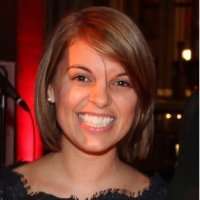Kicking off its 5th year, the World Science Festival had their opening night performance in the historic United Palace Theatre. The last of Marcus Loew’s vaudeville theatres from the 1920s and 30s, the United Palace Theatre is now home to the United Church Science of the Living Institute, and sometimes alternative rock concerts. A strange yet mesmerizing place, the entire space is ornately designed. Romanesque arches and domes are embellished with gold leaf, jeweled lamps and religious relics hang from the ceiling, and Arabic tile works decorate the walls. A real amalgamation of architectural styles, it was the perfect home for Icarus at the Edge of Time, a multimedia, multi-sensory re-imagination of Albert Einstein’s theory of relativity, and the opening night of the World Science Festival.
With a mission to ‘cultivate and sustain a general public informed by the content of science, inspired by its wonder, convinced of its value and prepared to engage with its implications for the future,’ the World Science Festival welcomed over 1,500 students at its inaugural event. After participating in a number of masterclasses on the science principles underlying Einstein’s theory of relativity, these same students engaged with Einstein’s theory outside the classroom and in a whole new setting: the concert hall.
With children and adults spilling out of their seats, the performance itself seemed too big for the confines of the stage. Joining the Orchestra of St. Luke’s and guest conductor Brad Lubman was Levar Burton, the beloved host of the children’s television series Reading Rainbow. The narrator of the story, Burton brought Icarus’ vulnerable, cocky and adventurous personality to life. Coupled with the moving image—a film produced by Al + Al—and the Orchestra of St. Luke’s, the compelling adaptation of Icarus, a classic Greek myth, came to life.
Written by Brian Green, a professor of physics and mathematics of Columbia University, and co-founder of the World Science Festival, and adapted for the stage by David Henry Hwang, a playwright, librettist and screenwriter most famous for M. Butterfly, Icarus at the Edge of Time was a re-imagining of the classic Greek myth. Rather than present a story about wax wings and a (tragic) journey too close to the Sun, in this story, Icarus is tempted by the vastness of the universe and challenges the power of a black hole, all of which brought to light the implications of Einstein’s theory of relativity. A scientific insight that has influenced thinking in physics, astrology and the fantasies of time travel—I’m thinking about Dr. Who here—the theory of relativity implies that as a gravitational pull gets stronger, time itself slows down.
Although the visual created by Al + Al was startling, and at times beautiful, it was the Orchestra of St. Luke’s that illuminated Icarus’ perilous journey through Phillip Glass’ original score. Right from the start, a constant drone in the strings sounded like a faint hum: a clear indication of the endless monotony aboard Icarus’ family starship and their 23 trillion year journey to discover a new star. Even as tension in the story built up, the music remained repetitive and cyclical, reminding us of the ever-present routine.
The most compelling part of the performance was the combined visual and audio manifestation of Einstein’s theory of relativity. As Icarus drove closer and closer to the center of the black hole, the audience could see Icarus’ movements slow to a complete halt on screen. Simultaneously, the Orchestra of St. Luke’s played repeated triplets at decreasing speeds, reinforcing the idea that time slows down as gravity’s force is increased upon you. The effect was simple yet enchanting.
Altogether, Icarus at the Edge of Time was the perfect manifestation of the Festival’s inherent mission. It was inventive, engaging and wholly imaginative. Combining visual effects, live narration and a 65-piece orchestra, the classic story of Icarus and Einstein’s age-old scientific principle were re-imagined for the concert stage. It was the perfect start to this year’s World Science Festival.


